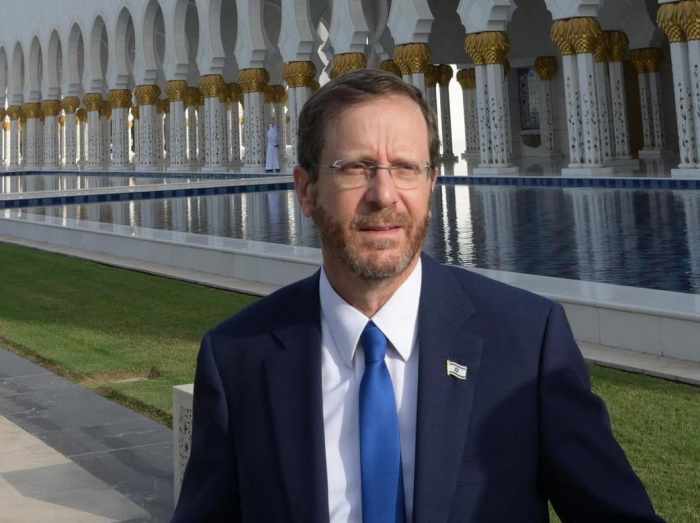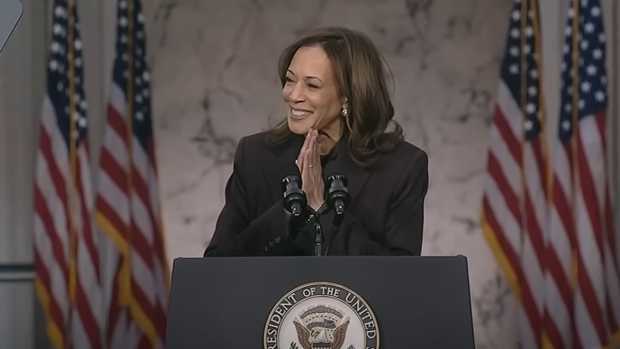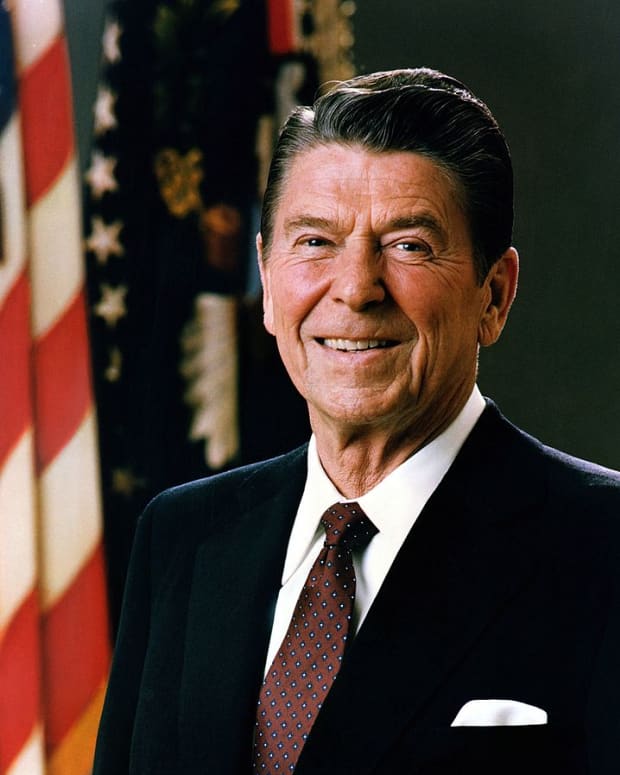Israel President and Prime Minister: What's the Difference?

Israeli leaders Benjamin Netanyahu (prime minister) and Isaac Herzog (president)
Kobi Gideon / Government Press Office, CC BY-SA 3.0, via Wikimedia Commons
Israel President vs. Prime Minister
In 2021, Israel elected a new president, Isaac Herzog. But perhaps you've also heard that Israel has a prime minister. That's right: it has both!
Both are executives, so what's the difference between the two? Here's what you need to know.

Israeli President Isaac Herzog
Amos Ben Gershom / Government Press Office, CC BY-SA 3.0, via Wikimedia Commons
Israel's President
On June 2, 2021, the Israeli Knesset (Israel’s 120-seat unicameral legislature) elected Isaac Herzog as their nation’s tenth president. President Herzog will serve one seven-year term—he cannot be reelected, a recent change in their system, which previously allowed for two five-year terms.
Having their president choose their legislature would be like the American president being elected by the Congress. (This could actually happen in the United States if the Electoral College could not elect a president by majority vote.)

Israel's 120-member unicameral legislature is called the Knesset. It is the Knesset that selects the president, and the president selects the prime minister.
The President of Israel selects the prime minister. However, he doesn't just choose anyone he wants. He must choose a prime minister that can lead a coalition government, given Israel’s fractured party system.
Like the king or queen of the United Kingdom, the president’s role is largely a ceremonial one, like his appointment of the prime minister and of judges. He signs the laws passed by the Knesset (except those pertaining to his own powers).
He does make some important appointments to office, like that of the Governor of the Bank of Israel. He also has the power to pardon and commute prisoners' sentences. However, with many of the powers he exercises, he does so upon the recommendations of other officials.
Israel's true executive power resides with the prime minister, who is currently Benjamin Netanyahu.
Israel's Prime Minister
You rarely ever hear about Israel’s president. That’s because most of the executive power tends to reside with the prime minister. Israel’s current prime minister is Benjamin Netanyahu, who is Israel’s ninth prime minister and a member of the Likud Party.
Netanyahu has been prime minister since 2009 (but was also prime minister earlier, from 1996 to 1999). Like many other prime ministers in parliamentary governments, Netanyahu is the head of government and has the primary responsibility of carrying out government policies, along with the government ministers.
When Israel is discussed in the media, it's usually Netanyahu's name that you hear in the news and whose face you often see on television. He is the face of the country when it comes to conducting foreign policy with other government leaders around the world. It is the Israeli prime minister—not Israel’s president—that will travel to the United States to meet with the U.S. president.
The National Election
Israel must hold a national election at least every four years (but elections can be called earlier). As mentioned above, the president will choose a party leader that can form a coalition government. It will usually be the party that got the most votes in the election, but not always.
As an example, in the 2009 Israeli elections, the Kadima Party barely won the plurality (that’s more votes than anyone else) over Benjamin Netanyahu’s Likud Party. Typically, the leader of the party that wins the plurality gets to form the coalition government. However, the Kadima Party’s newly chosen leader, Tzipi Livni, was unable to form a coalition government.
Israel’s president at the time, Shimon Peres, then went to Netanyahu, whose party won second place in the election, and presented him with the opportunity of forming a new government, which he did. Once he formed a coalition of parties, Netanyahu submitted his coalition to the Knesset, which voted to approve the coalition. Because Netanyahu was able to secure a winning coalition, he became the prime minister.
References
- Israel Ministry of Foreign Affairs
Israeli Democracy: How Does It Work?
This content is accurate and true to the best of the author’s knowledge and is not meant to substitute for formal and individualized advice from a qualified professional.
© 2014 William R Bowen Jr
Comments
Demas W Jasper from Today's America and The World Beyond on December 22, 2014:
Thanks for highlighting this aspect of Israeli government. I found Washington's published/not delivered "Farewell Address" so cogent to our times. You might read it again and comment, too?



















